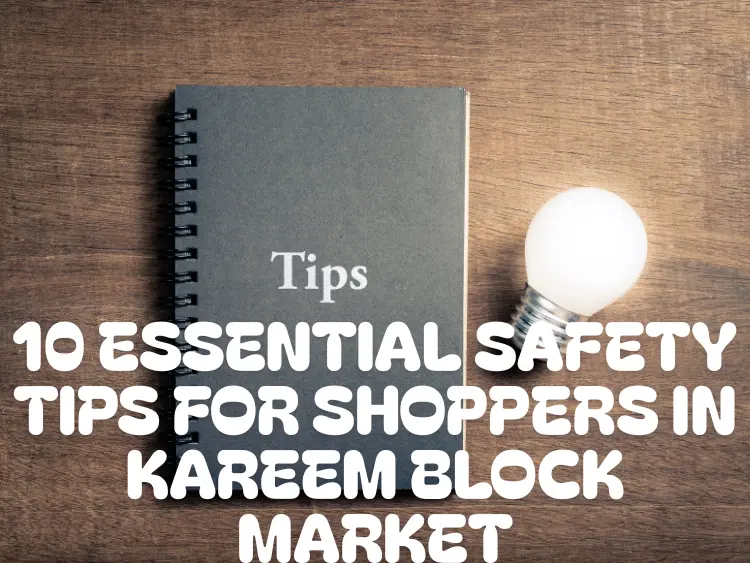Spinning about the vibrant streets and throbbing energy of Kareem Block Market is a story on its own, but you’ve got to be on your guard among its jostling jaib katray (pickpockets) and wayward stretch of tujh (spots). Although the market is a colorful and rich array of shops, local culture, and experiences, some areas are unsafe and intimidating, especially for novices.
If you’re using your safari (vehicle), go for the official stands – these are the safest places to get picked up or dropped off in town. Also, be wary of the strangers with offers — (phrases like “Hey, come here, let me show you something” or “Come with me” or “I’ve got some free beer and food”) — if you think “something is off here,” don’t be afraid to follow your spidey sense. This guide is designed to give you a few safety tips to ensure your enjoyment of the Kareem Block market is safe. It is every update of whatever you come across.
1. Know Your Surroundings:
Some jaib katray(pickpockets) can be dangerous because of poor lighting, little foot traffic, or unexpected turns. Get to know the area ahead of time, and don’t take any shortcuts that local people don’t know about.
2. Stick to Designated Stands:
If you have to take a ride on your safari, use the authorized stands or allow pick-up/drop-off only from the designated spots. THOSE areas are typically safer and have better patrols, as opposed to randomly isolated places.
3. Plan Your Route:
Before you go, chart your course. If you’re short of time or feeling unconfident, then find busy, well-lit places to stop and remember not to hang out in stinky, dangerous jaib katray (pickpocket) where thieves or unwanted admirers might see you.
4. Trust Your Instincts:
When approached by someone who is trying to lure you with statements such as “Come, I will show you something,” be instantly cautious. Conmen often use such uninvited invitations to put shoppers in embarrassing situations. Explore the first-time shopping guide in Karim Block.
5. Refuse Free Offers from Strangers:
Never take free drinks, food, or anything from strangers. These offers of affection will oftentimes have ulterior motives, so it’s better to be safe than sorry as you respectfully decline and stay on the lookout.
6. Keep Your Valuables Secure:
While walking or in your safari (vehicle), keep your valuables—wallets, mobile phones, and personal bags—secure and out of easy view. Pouches with zippered compartments are also important, and in crowded places, you might feel more secure with a money belt.
7. Travel with a Companion:
If you can, shop or go from place to place with a friend. Safety in numbers and having someone at your side can minimize the danger of exploring strange or secluded places.
8. Avoid Flattery and Over-Familiarity:
Some people may attempt to gain your trust by engaging in small talk or by flattering you. Be wary and keep things professional; friendly faces are often ridden with ill intentions.
9. Stay Connected:
Make sure your phone is charged, and you’ve shared your travel plans with a friend or family member. Your location can be vital if you are in danger.
10. Be Mindful of Local Customs:
Find out about local shopping and travel habits. What may feel like a helpful offer in another country may be a technique used locally to distract or deceive. Know a couple of phrases or customs from the area to decrease the chances of being steered wrong or ripped off.
Wrap Up
By following these 10 safety tips, you will be able to protect yourself from the most dangerous threats of Pickpockets. You will also spare any risk of getting scammed by dubious offers which you should ignore (and I will explain to you how to avoid them if you are required to use any of the below techniques). This way, you will make sure that you keep your shopping and your traveling enjoyable and safe. For more on situational awareness or other local travel tips, please ask!
Read more: Essential contact information/ Food Street for Karim Block
